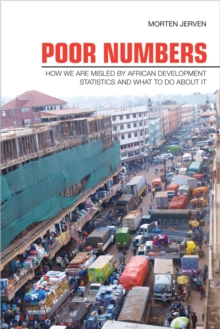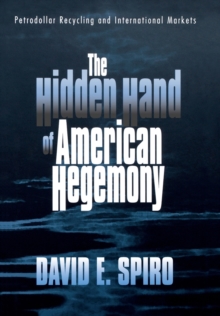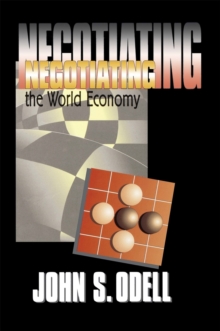
The Hidden Hand of American Hegemony : Petrodollar Recycling and International Markets PDF
by David E. Spiro
Part of the Cornell Studies in Political Economy series
Description
This study... makes a significant contribution to the literature of international political economy. The book also is a useful point of departure for further exploration by historians of finance, economics, and business. The data on capital flows alone constitute a valuable resource for all analysts.... The book is closely argued within the author's established methodological framework. It engages the reader in lively argument.- Michael R. Adamson - Business History Review
Between 1973 and 1980, the cost of crude oil rose suddenly and dramatically, precipitating convulsions in international politics. Conventional wisdom holds that international capital markets adjusted automatically and remarkably well: enormous amounts of money flowed into oil-rich states, and efficient markets then placed that new money in cash-poor Third World economies.
David Spiro has followed the money trail, and the story he tells contradicts the accepted beliefs. Most of the sudden flush of new oil wealth didn't go to poor oil-importing countries around the globe. Instead, the United States made a deal with Saudi Arabia to sell it U.S. securities in secret, a deal resulting in a substantial portion of Saudi assets being held by the U.S. government. With this arrangement, the U.S. government violated its agreements with allies in the developed world. Spiro argues that American policymakers took this action to prop up otherwise intolerable levels of U.S. public debt. In effect, recycled OPEC wealth subsidized the debt-happy policies of the U.S. government as well as the debt-happy consumption of its citizenry.
Information
-
Download - Immediately Available
- Format:PDF
- Pages:200 pages
- Publisher:Cornell University Press
- Publication Date:30/06/2019
- Category:
- ISBN:9781501711978
Other Formats
- Hardback from £42.85
Information
-
Download - Immediately Available
- Format:PDF
- Pages:200 pages
- Publisher:Cornell University Press
- Publication Date:30/06/2019
- Category:
- ISBN:9781501711978










